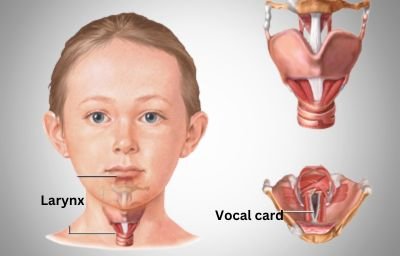
Hoarseness is a non-specific word which indicates that the voice is abnormal. Hoarseness may take several forms, including breathiness, raspiness, strain of the voice, or changes in loudness or the tone of the voice. Such changes that are noted are usually a result of some sort of disorder affecting the vocal folds (cords). The vocal folds remain apart while breathing as the voice box (larynx) is the gateway into the windpipe. However, when speaking or singing, the vocal folds are brought together, essentially narrowing the air flow, vibrating, and producing sound (voice). When swelling or some sort of mass occurs on the vocal fold, it prevents the vocal folds from coming together properly, which can cause a change in the voice.
Hoarseness may result as a consequence of several different disorders. In most cases, the causes are not of serious nature and will be of short duration, usually disappearing without any treatment whatsoever. Certainly the most common cause of hoarseness is acute laryngitis, which occurs usually as a result of a virus infection and may be associated with a cold or other respiratory tract infection. Acute laryngitis may also occur as a result of injury, such as excessive vocal use. Prolonged misuse of the voice may result in chronic laryngitis which would be of longer duration. If hoarseness is prolonged and improper vocal habits are persistent, vocal fold nodules or other pathologies may occur.
One of the most prevalent causes of hoarseness, especially in adults, is Laryngopharyngeal Reflux (LPR). In this condition, stomach acid comes up from the stomach through the esophagus and into the throat, irritating the vocal folds and the larynx. Interestingly enough, many patients who have significant reflux do not have symptoms of heartburn, but may have a feeling of a lump sensation in the throat or a sense of mucus or postnasal drainage. Such irritation leads to excessive throat clearing, which prolongs the irritation and the hoarseness.
Of course, everyone knows that smoking is a major cause of hoarseness. It is also a major factor in the development of vocal cord cancer and if prolonged hoarseness occurs in one who smokes, evaluation should be sought.
There are other causes of hoarseness and among them are those associated with advancing age, hormonal changes, allergies, thyroid problems, nerve disorders, and injury. Most hoarseness does not require treatment and in such cases modified vocal rest is sufficient. However, when hoarseness lasts more than a few weeks, it should be evaluated by a throat specialist. Some hoarseness may be of complex origin and treatment of the hoarseness may require any one of several professionals, including an otolaryngologist, a speech pathologist, or a vocal coach.
It is generally believed that if hoarseness lasts longer than a few weeks or is associated with pain, difficulty swallowing, coughing up of blood, or a lump in the neck, specialist evaluation is imperative. The diagnosis of the condition which may be resulting in hoarseness is generally accomplished by painless office techniques which allow for visualization of the vocal folds. Treatment is dependent upon the diagnosis, and in some cases vocal rest or modification of vocal usage is the treatment of choice. If one smokes, discontinuation of smoking is advised. Dehydration should be avoided, and adequate amounts of water should be consumed. Humidification, dietary control (avoiding spicy foods, caffeine and alcohol) and the avoidance of abusive vocal behavior (shouting, screaming, singing, and excessive throat clearing) can be very effective. In some cases, specific medical or even surgical treatment is necessary.